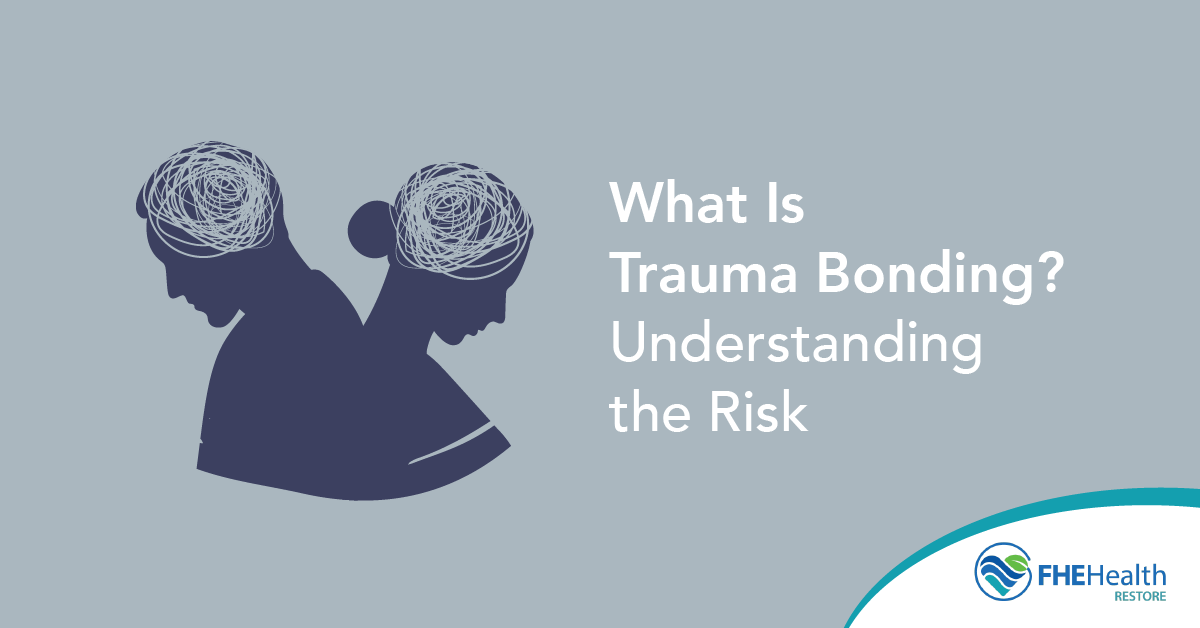You might know someone who stays connected to a person who hurts them, and it probably confuses you. Maybe that someone is you. Most people mix up trauma bonding vs. bonding over trauma, not realizing these create completely different types of connections.
In this article, we’ll look at why some people feel more attached to partners who hurt them and what you can do when you spot trauma bonding patterns in your own relationships.
Defining Trauma Bonding and How It Forms
Trauma bonding is when someone hurts you and then shows you kindness, creating a confusing attachment that feels impossible to explain. Your brain can’t process someone who screams harsh words on Tuesday, then brings you coffee and speaks softly on Wednesday.
You end up seeking comfort from the same person who caused your pain. Those tender moments feel very powerful after being hurt, so your system mistakes this intensity for real connection.
But trauma bonding sometimes goes beyond emotional games. The reality is much darker. In 2023, around 51,100 women and girls worldwide were killed by their intimate partners or other family members.
If you feel unsafe, reach out to the National Domestic Violence Hotline at (800) 799-7233. Your life matters.
Signs You May Be in a Trauma-Bonded Relationship
Not every abusive relationship creates trauma bonds. Sometimes you recognize the abuse and leave before these psychological chains form. Other times, you might be trauma-bonded without realizing it.
Here are the warning signs to look out for:
- You feel more connected to your partner after they hurt you and then apologize.
- You make excuses for their behavior to friends and family.
- You feel like you can’t function without them.
- You believe you’re the only person who truly understands them.
- You feel responsible for their emotional well-being and mood.
- You stay because you’re afraid of what they might do to themselves if you leave.
- You find yourself defending them even when you know they’ve treated you badly.
Why Leaving These Relationships Can Be So Difficult
Smart, capable people stay in harmful situations because these relationships follow a predictable pattern. Your partner floods you with overwhelming attention at first. Expensive gifts appear. They text constantly and claim you’re their soulmate.
Then small criticisms creep in about your clothes or friends. When you mention how these comments hurt, somehow you end up apologizing for being too sensitive. Your world gradually shrinks as calling friends back feels exhausting and activities you loved seem pointless.
Just when you consider leaving, they become that incredible person again. The affection hits even harder after the pain, pulling you back into the same cycle.
The Emotional and Psychological Impact of Trauma Bonds
Trauma-bonded relationships damage your mind and body in ways that can last for years. Your nervous system stays on high alert, creating problems that continue even after you escape.
You might develop:
- Chronic anxiety, depression or post-traumatic stress disorder symptoms
- Constant fear and memories that disrupt your daily life
- Sleep problems, headaches and stomach issues
Many survivors lose their sense of self and struggle to trust their own judgment. You might pull away from friends because you feel ashamed or worry about being hurt again.
Recovery takes time and professional help, but it happens. Recognizing these effects is your first step toward getting your life back.
How Therapy Can Help Break the Cycle
Therapists who work with trauma bonding understand what you’re facing. They’ve guided others through breaking these same patterns. Healing happens slowly, but it does happen.
Your therapist might recommend two approaches that work particularly well when it comes to trauma bonding:
- Trauma-informed therapy helps you understand why your body reacts the way it does.
- Cognitive behavioral therapy teaches you new ways to respond when old patterns try to take over.
Group sessions also connect you with other people who’ve walked this same difficult path. You’ll finally meet people who understand without you feeling judged.
Rebuilding Healthy Boundaries and Relationships
Trusting someone new probably feels impossible right now. That reaction makes complete sense after what you’ve experienced. Your brain expects pain from people who say they care about you.
You can learn to spot genuine care through small steps:
- Listen when your body tenses up around certain people.
- Say “Let me think about it” instead of automatically agreeing to things.
- Notice who stays patient when you need space or time to decide.
- Watch for friends who get excited about your wins without making it about them.
Healthy relationships feel boring compared to trauma bonds. But that’s the point. You’ll know the difference when you experience it.
Stop Confusing Trauma Bonding vs. Bonding Over Trauma. Get Help Today!
Discovering whether you experienced trauma bonding or just connected with someone over shared struggles can be challenging. The difference matters, though. Bonding over trauma means two people are helping each other heal. Trauma bonding means you got attached to whoever was hurting you.
You don’t have to sort this out alone. We help people every day at Restore Mental Health who feel exactly like you do. We’re located in South Florida as part of FHE Health.
We get calls from people in very similar situations. Confused. Tired. Maybe a little embarrassed about staying so long. Call us today.



